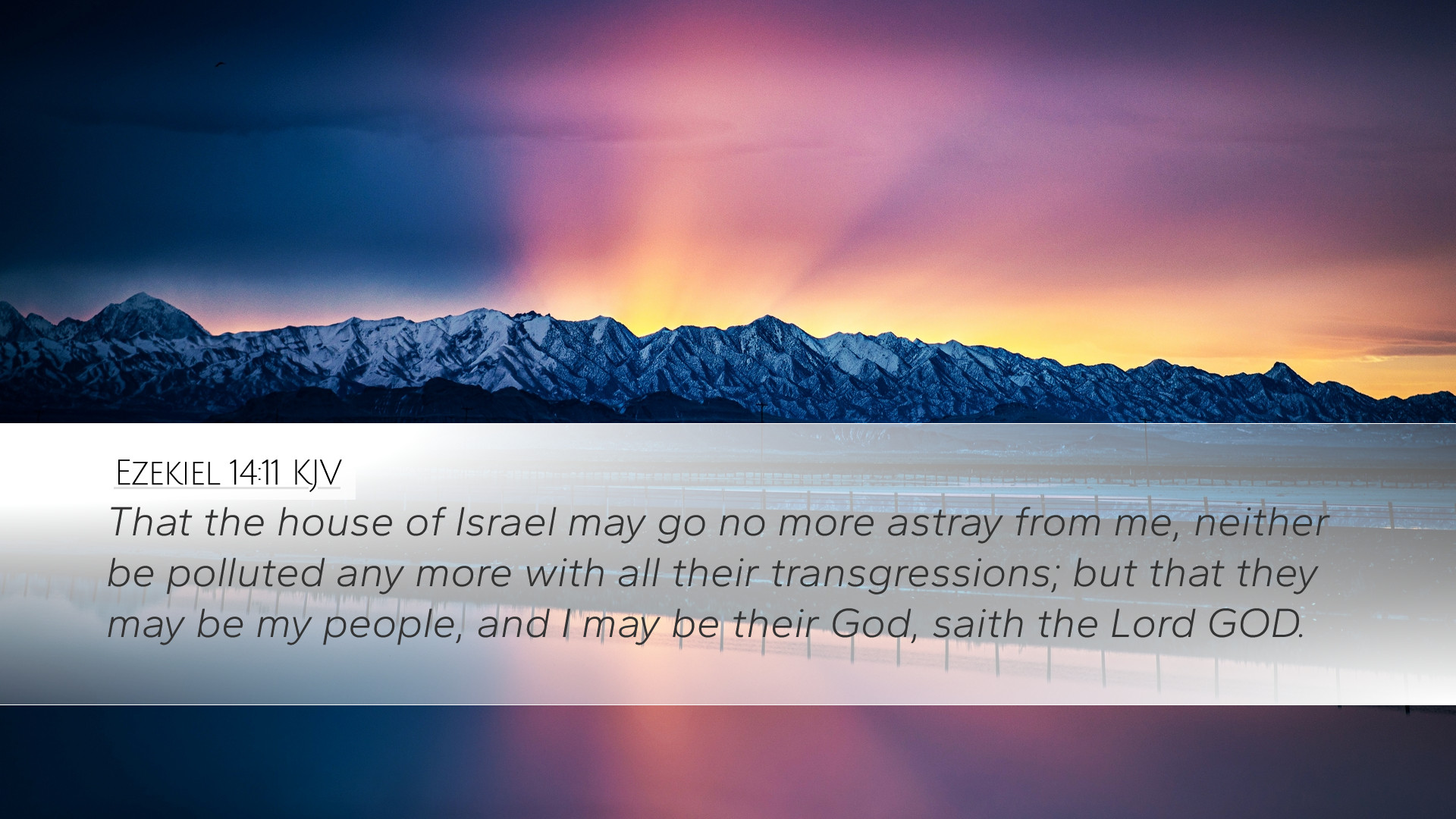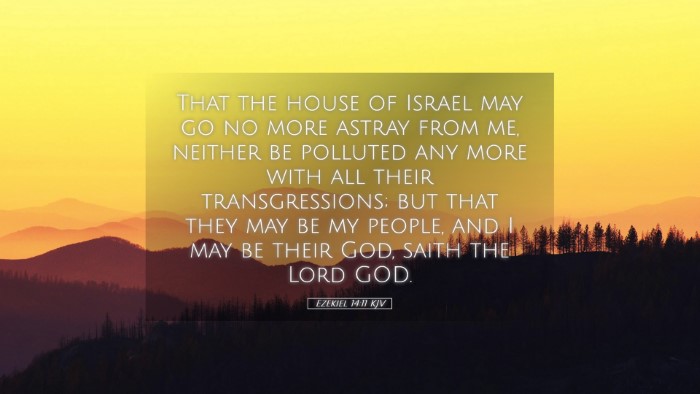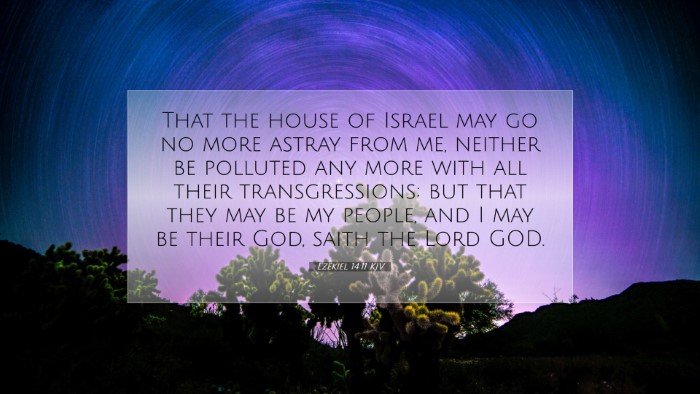Ezekiel 14:11 Commentary
Verse Reference: Ezekiel 14:11 - "That the house of Israel may no more go astray from me, neither be polluted any more with all their transgressions; but that they may be my people, and I may be their God, saith the Lord GOD."
Introduction
This profound verse encapsulates God's desire for a relationship with His people, emphasizing restoration, transformation, and covenant fidelity. The Prophet Ezekiel, during a time of national crisis for Israel, delivers this message amidst a series of visions and prophecies concerning judgment and renewal. Multiple public domain commentaries provide a rich tapestry of insights into this text, making it particularly beneficial for pastors, students, theologians, and Bible scholars.
Historical Context
The book of Ezekiel is set during the Babylonian exile, a time characterized by despair and disillusionment for the Israelites. They had strayed from God's commandments and had engaged in idolatry and other transgressions that led to their current state of exile. Ezekiel speaks to a people who desperately need hope and direction. According to Matthew Henry, this chapter serves to remind the Israelites of God's unchanging nature, even in the face of their rebellion.
Theological Significance
-
Restoration:
This verse highlights God's initiative for restoration. According to Albert Barnes, God's purpose in drawing them back is fundamentally about rehabilitating their spiritual identity. The phrase "that the house of Israel may no more go astray from me" underscores the idea that God desires His people to return to Him not just physically but spiritually.
-
Covenantal Relationship:
Ezekiel emphasizes the importance of the covenant relationship. Adam Clarke notes that the terminology used—"my people" and "I may be their God"—reinforces the personal and committed nature of God's relationship with Israel. This covenantal language reflects God’s continual desire to engage with His people despite their failings.
-
Holiness and Purity:
The verse addresses the notion of moral and spiritual purity. The phrase "neither be polluted any more with all their transgressions" signifies a call to holiness. As Matthew Henry points out, this purification is essential for the community's restoration to vitality and their ability to fulfill their collective identity as God’s chosen people.
Interpretative Insights
Several key themes arise from this verse, impacting both theological discourse and practical application in Christian living:
-
Divine Sovereignty:
God’s sovereignty is central to Ezekiel’s message. He is portrayed as the ultimate authority who calls His people back to Himself. Both Barnes and Clarke emphasize that despite Israel’s unfaithfulness, God remains steadfast in His desire for reconciliation and restoration.
-
Human Responsibility:
While God is portrayed as initiating the restoration, there remains a significant implication of human responsibility. The Israelites must choose to return to God. Clarke highlights that this choice reflects a personal and corporate repentance necessary for renewal.
-
Frustration of Idolatry:
The context of idolatry surrounding Israel during Ezekiel’s time cannot be overlooked. The consequences of idol worship had led to their downfall. Matthew Henry emphasizes that turning away from these transgressions is crucial for re-establishing their relationship with God.
Application for Today
This verse offers timeless principles that resonate deeply with contemporary believers:
-
Call to Repentance:
Just as Israel was called to repent, so too are modern believers invited to recognize areas of spiritual wandering. Emphasizing the importance of contrition and turning back to God is crucial in pastoral ministry and theological reflection.
-
Community Restoration:
The verse serves as a reminder of the collective identity of the church, called to be God’s people. The call to holiness and purity is just as relevant today, challenging congregations to embody faithfulness and integrity in their witness.
-
Hope in Redemption:
Finally, the verse encapsulates a message of hope that the church should proclaim. Just as God sought to redeem Israel, so He seeks to redeem humanity through Christ. This reflects the ongoing narrative of the Gospel and the promise of God’s unfailing love.
Conclusion
Ezekiel 14:11 is a powerful declaration of God’s enduring desire for relationship with His people. As reflected in the commentaries of Henry, Barnes, and Clarke, it challenges us both theologically and personally. Pastors and theologians are called not only to understand the gravity of Israel's sin but also to articulate the profound grace available through repentance and restoration. This text remains a beacon of hope, signaling that while the path to restoration may be fraught with difficulty, the faithful promise of God endures.


